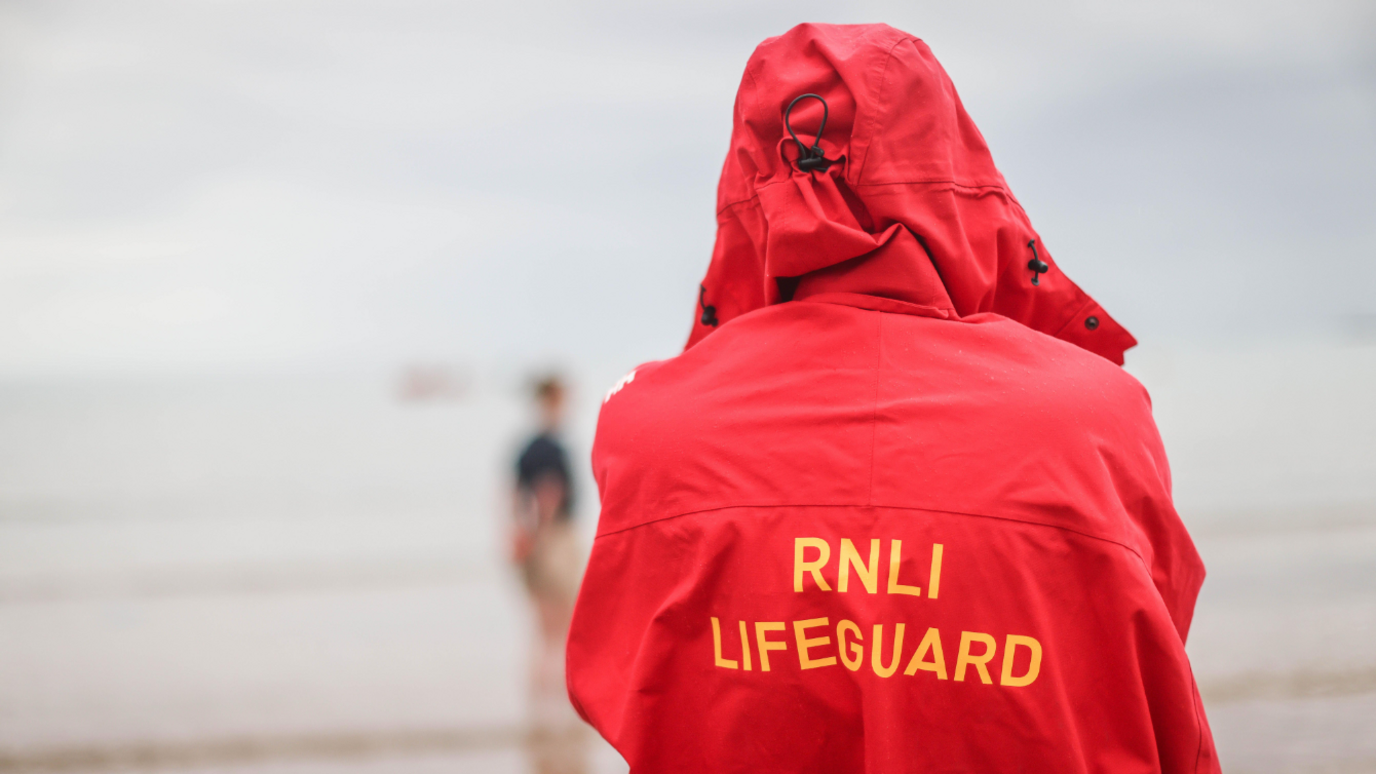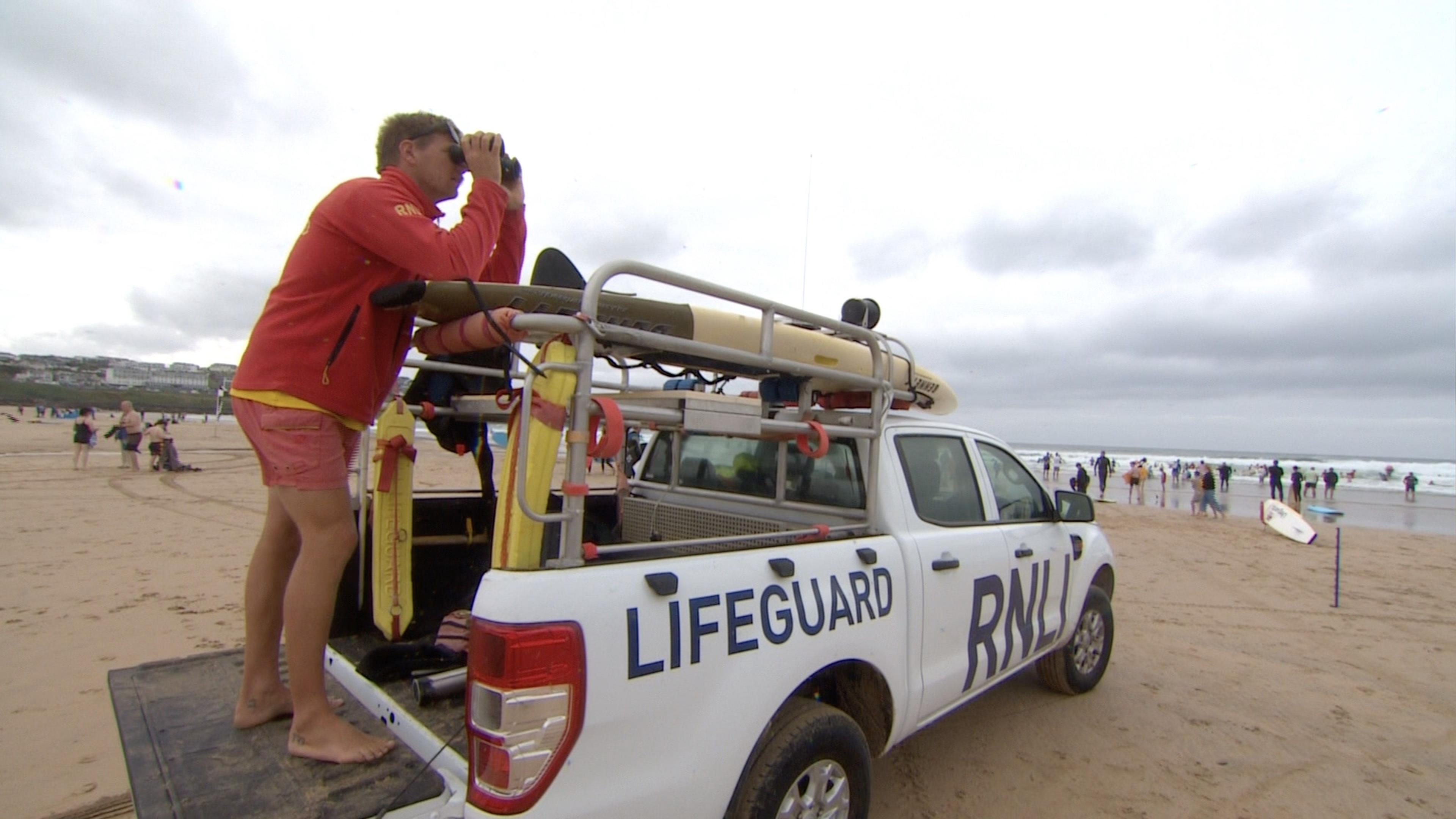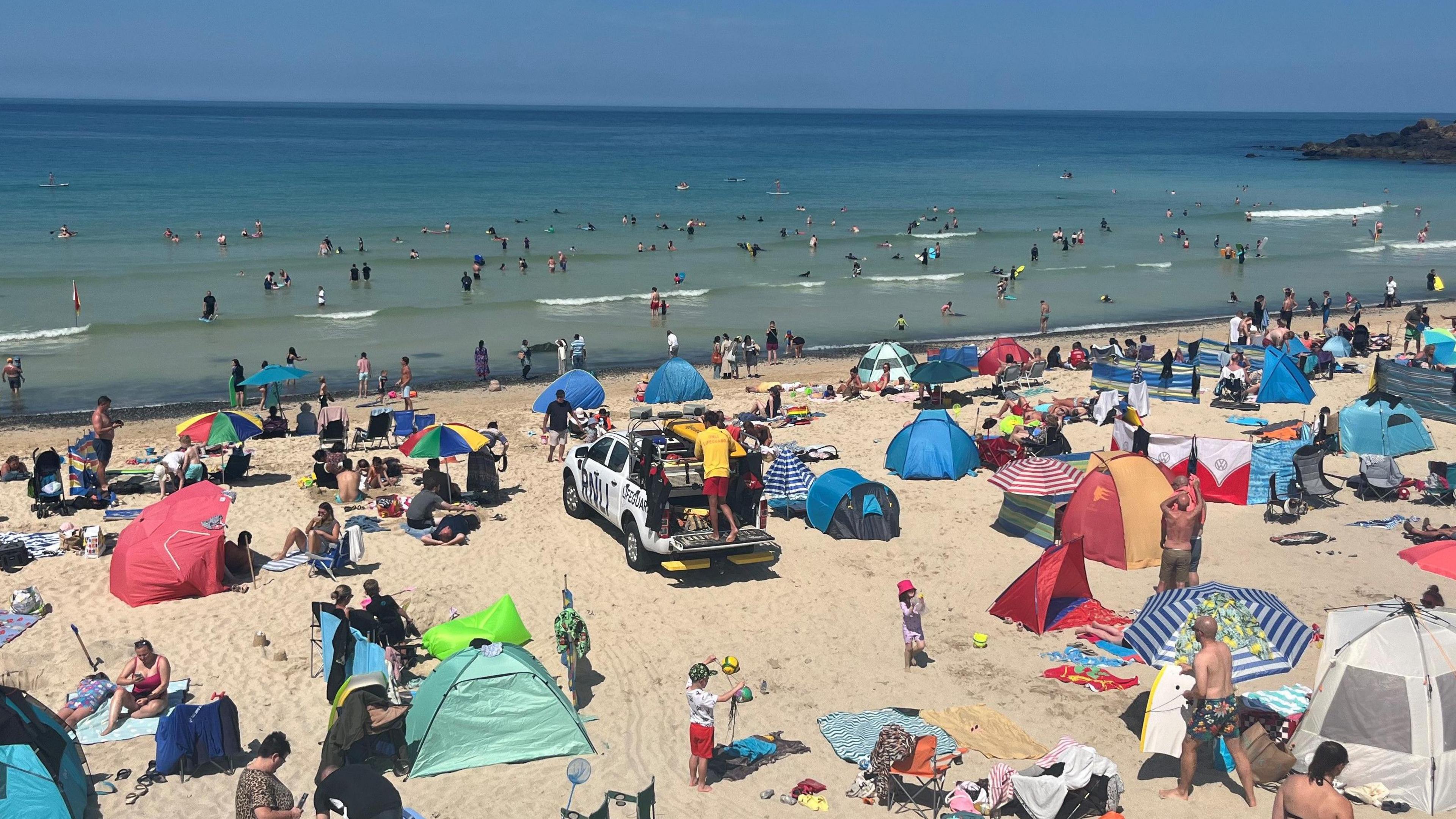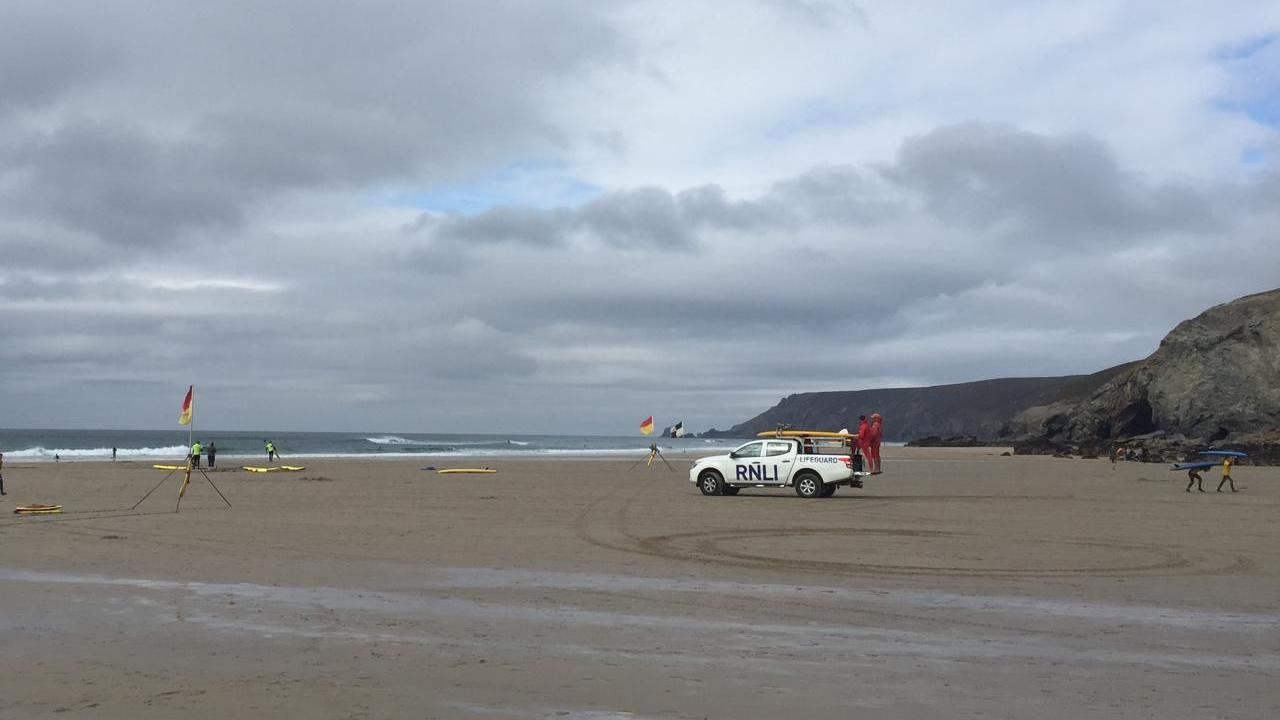RNLI urges beach safety over holiday weekend

The RNLI said it was expecting beaches to be busy during the bank holiday weekend
- Published
The RNLI is urging people in Cornwall to be aware of beach safety advice over the bank holiday weekend.
With a forecast of 17C (62.6F) on Saturday and 18C (64.4F) on Sunday, RNLI Cornwall said it was expecting the county's beaches to be busy.
In mid-August, the service said its lifeguards in Newquay saved three lives and performed more than 100 rescues over one weekend.
The charity urged beach users to be aware of the upcoming spring tides which can "come in surprisingly quickly".
Steve Instance, regional water safety lead, said the RNLI was available 24 hours a day, every day of the year, but was spreading safety advice as far as possible.
He said: "We don't just rely upon rescue, we don't just rely upon people waiting to get into difficulty, we've had a really popular school education programme, we visited almost every single primary school in Cornwall."
Mr Instance said the RNLI had worked within the community and those who use the coastline to "increase knowledge on how to keep themselves safe and other people".
'Find safe areas'
Emma Newberry, RNLI lifeguard, said people could still have fun at the beach but needed to be aware of the dangers.
She said: "Of course we're all really excited when we come down to the beach, we want to jump in the water straight away, but it's really important to find the safe areas first.
"Look for our lifeguarded area, have a word with the lifeguards before you head in, we're always looking to engage with people heading into the water, we love having conversations with people and helping to educate them on what to look out for when you're on your next beach day over the weekend."
If in danger, the RNLI advises, external people to Float to Live - lean back, extend your arms and legs and control your breathing, then call for help.
Follow BBC Cornwall on X (formerly Twitter), external, Facebook, external and Instagram, external. Send your story ideas to spotlight@bbc.co.uk, external.
- Published12 August 2024

- Published7 August 2024

- Published25 June 2024
